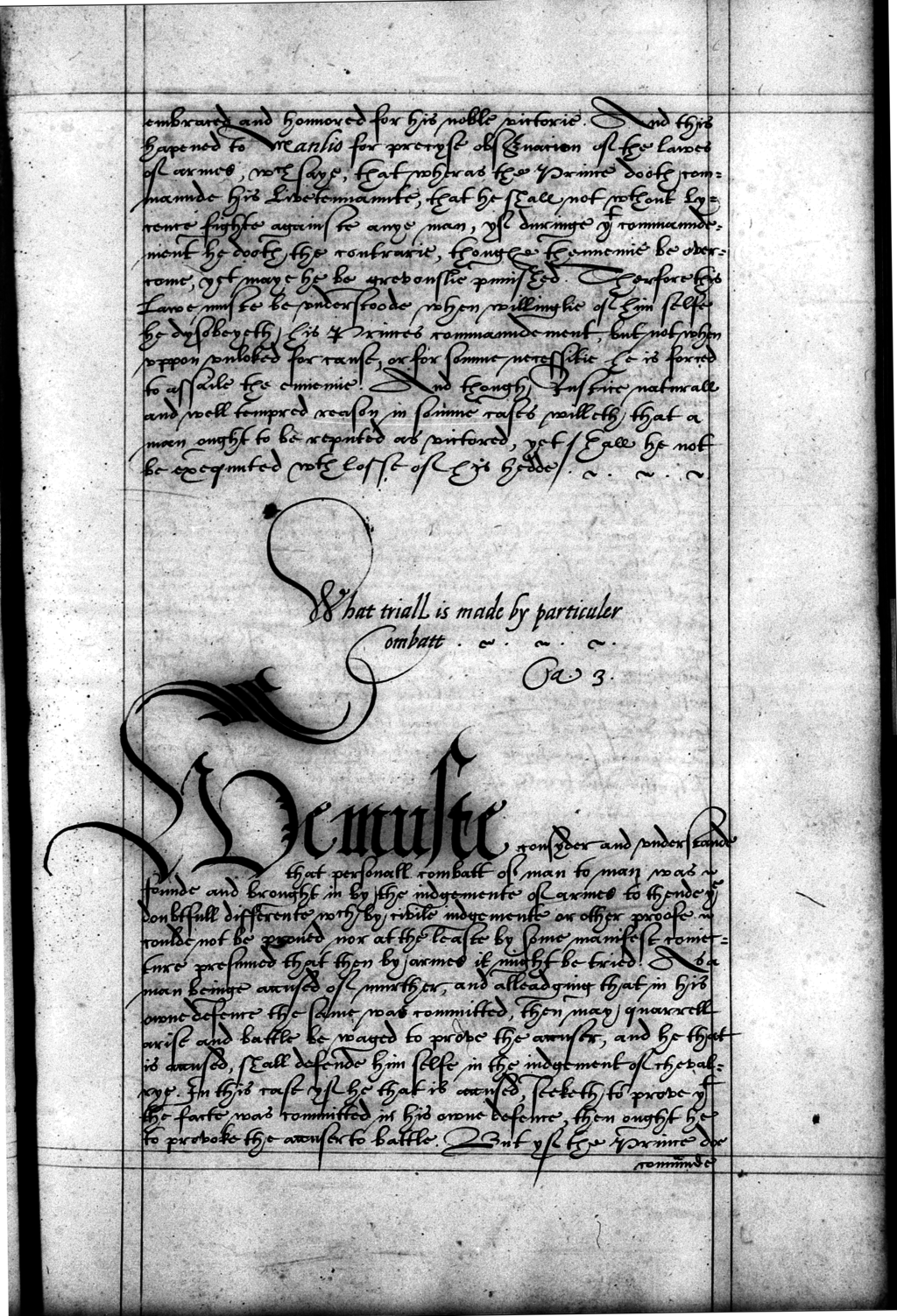embraced and honnored for his noble victorie. And this
hapened to Manlio for precyse obseruacion of the lawe
of armes, wch saye, that wheras the Prince dooth com:
mannde his livetennannts, that he shall not wthout ly:
cence fighte againste anye man, yf during yt commannde:
ment he dooth the contrarie, thoughe th ennemie be over:
come, yet maye he be grevouslie punished. Therfore this
lawe muste be vnderstoode when willinglie of him selfe
he dysobeyeth his Princes commanndement, but not when
vppon vnloked for cause, or for somme necessitie he is forced
to assaile the ennemie. And though Iustice naturall
and well tempred reason in somme cases willeth that a
man ought to be reputed as victored, yet shall he not
be exequuted wth losse of his hedde.
What triall is made by particular
Combatt.
Ca. 3.
We muste consyder and vnderstande
that personall combatt of man to man was
founde and brought in by the iudgemente of armes to th ende yt
doubtfull differente wch by civile iudgemente or other proffe
coulde not be proued nor at the leaste by some manifest coniec:
ture presumed that then by armes it might be tried. As a
man beinge accused of murther, and alleadging that in his
owne defence the same was committed, then may quarrell
arise and battle be waged to prove the accuser, and he that
is accused shall defende him selfe in the iudgement of cheval:
rye. In this case yf he that is accused, seeketh to prove yt
the force was committed in his owde defence, then ought he
to provoke the accuser to battle. But yf the Prince doe
|
|
You are not currently logged in. Are you accessing the unsecure (http) portal? Click here to switch to the secure portal. |
Page:MS V.b.104 031r.png
Jump to navigation
Jump to search

This page needs to be proofread.

